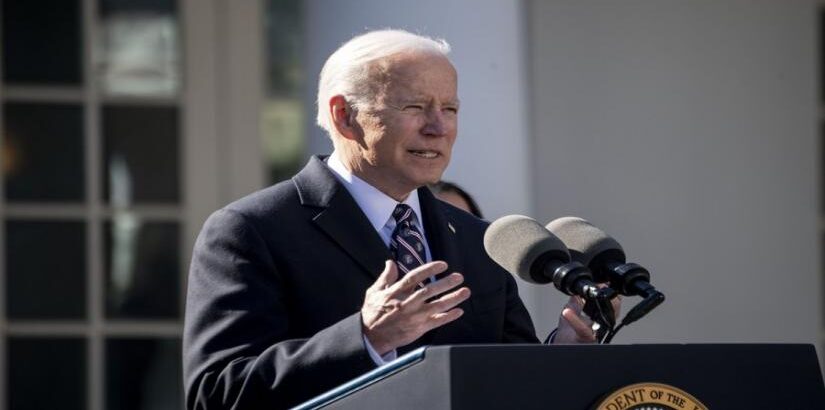Sep 8 – The Biden administration cancelled the seven remaining oil and gas leases in Alaska’s Arctic National Wildlife Refuge on Wednesday, overturning sales made in the final days of the Trump administration, and proposed stronger protections against development on vast swaths of the National Petroleum Reserve-Alaska.
The leases were cancelled by the Department of Interior after the Biden administration disappointed environmentalists earlier this year by approving the Willow oil project in the petroleum reserve, a massive project by ConocoPhillips Alaska that could produce up to 180,000 barrels of oil per day on Alaska’s petroleum-rich North Slope. More than 20,000 square miles (51,800 square kilometres) of land in the reserve in the western Arctic are planned for protection.
Some critics praised Wednesday’s announcement, saying it contradicted Biden’s commitments to confront climate change. However, they stated that more could be done. The Willow project is now being litigated over.
“Alaska is home to many of America’s most breathtaking natural wonders and culturally significant areas. As the climate crisis warms the Arctic more than twice as fast as the rest of the world, we have a responsibility to protect this treasured region for all ages,” Biden said in a statement.
His actions “meet the urgency of the climate crisis” and will “protect our lands and waters for generations to come,” Biden said.
Alaska’s Republican governor denounced Biden’s actions and warned legal action. At least one Democratic senator expressed concern that the decision might harm Indigenous people in an isolated location where oil production is a major economic engine.
Interior Secretary Deb Haaland, who has faced criticism for her part in the Willow project’s clearance, stated on Wednesday that “no one will have rights to drill for oil in one of the most sensitive landscapes on the planet.” A 2017 statute, however, requires another lease sale by late 2024. Administration officials stated that they plan to follow the law.
The Biden administration also announced proposed rules to strengthen protections against new leasing and development in sections of the National Petroleum Reserve-Alaska designated as special areas due to their wildlife, subsistence, scenic, or other qualities. The plan is still subject to public discussion. Willow is located within the reserve, but the proposed rules are not likely to affect it.
The 1.5-million-acre (600,000-hectare) coastal plain of the Arctic National Wildlife Refuge on Alaska’s northeastern frontier is considered sacred by the Indigenous Gwich’in because it is where caribou that rely on migrate and give birth. The plain is characterised by hills, rivers, tiny lakes, and tundra. Migratory birds and caribou go across the plain, which is home to animals such as polar bears and wolves.
Alaska political leaders, including some Democrats, have long advocated for oil and gas development in the refuge, citing the economic impact on Indigenous people in an area with few other job opportunities. For the same reason, many of those same voices urged Biden to support the Willow project.
“I am deeply frustrated by the reversal of these leases in ANWR,” said Democrat U.S. Rep. Mary Peltola, using a common abbreviation for the refuge. “With the approval of the Willow Project, this administration demonstrated its ability to listen to Alaskans, and it is some of those same Inupiat North Slope communities that are most impacted by this decision.” I will continue to campaign on their behalf, as well as for Alaska’s capacity to explore and utilise its natural resources.”
Alaska’s congressional delegation was successful in having wording included to a federal tax package in 2017 that required the federal government to perform two lease sales in the region by late 2024.
Drilling opponents requested Congress on Wednesday to delete the lease clause from the 2017 bill and permanently prohibit drilling in the coastal plain.
“It is nearly impossible to overstate the importance of today’s announcements for Arctic conservation,” said Jamie Williams, president of the Wilderness Society. “Once again, the Arctic Refuge is free of oil leases. Our climate is a bit safer and there is renewed hope for permanently protecting one of the last great wild landscapes in America.”
Alaska Republican U.S. Sen. Dan Sullivan termed Biden’s actions the latest volley in a “war on Alaska.”
Two other licences issued as part of the first-of-its-kind sale for the refuge in January 2021 were earlier surrendered by the small enterprises who had them due to legal fighting and uncertainties surrounding the drilling programme.
After taking office, Biden signed an executive order calling for a temporary halt to leasing-related activity and for the Interior Secretary to evaluate the programme. After ruling that there were “multiple legal deficiencies” underlying the Trump-era leasing programme, Haaland ordered a new environmental evaluation in 2021. Haaland has paused leasing programme activities pending the results of the new analysis.
On Wednesday, a draught environmental study was made public.
The prohibition was challenged in court by the Alaska Industrial Development and Export Authority, a state organisation that won seven leases in the 2021 auction. However, a federal judge recently ruled that Interior’s delay in conducting a new assessment was not excessive.
The corporation purchased the leases to protect drilling rights in the event that no oil companies came forward. Major oil corporations boycotted the auction, which was organised after major banks stated they would not finance Arctic oil and gas projects.
The Gwich’in Steering Committee’s executive director, Bernadette Demientieff, praised the administration for the lease cancellation but offered a caution.
“We know that our sacred land is only temporarily safe from oil and gas development,” she said. “We urge the administration and our leaders in Congress to repeal the oil and gas program and permanently protect the Arctic Refuge.”











